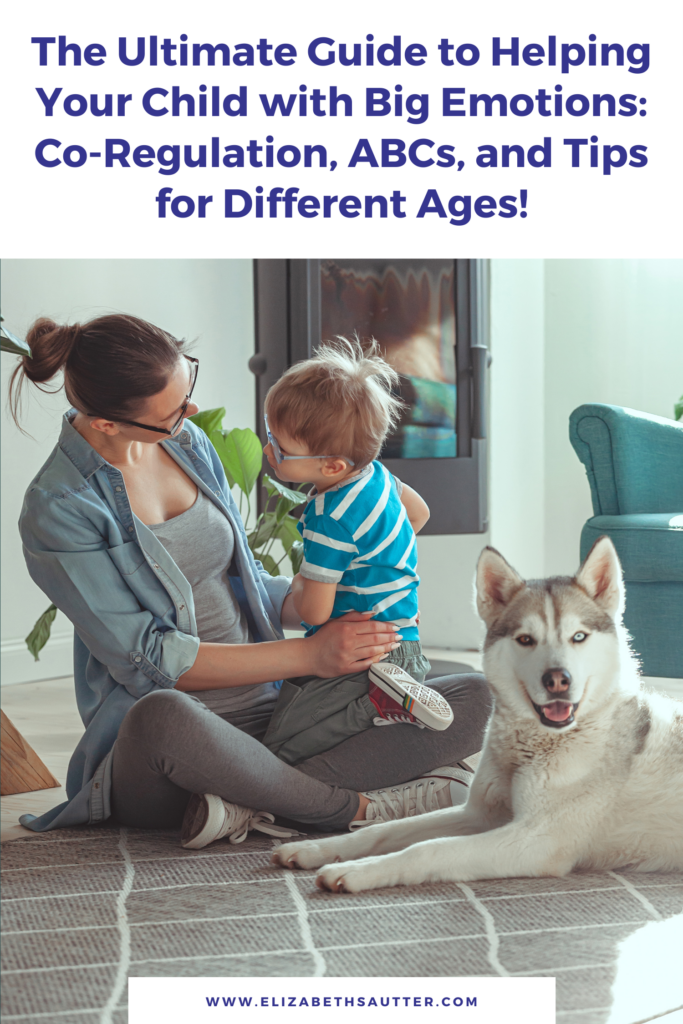Helping your child helping big emotions can sometimes feel overwhelming and like solving a mystery, right? But fear not, co-regulation is your superpower! It’s all about helping your kiddo handle their feelings, manage difficult situations, and keep those thinking brains working like superheroes. As their social-emotional coach, you play a vital role in teaching them how to handle all the ups and downs that life throws their way.
What is Co-regulation?
Okay, let’s break it down.
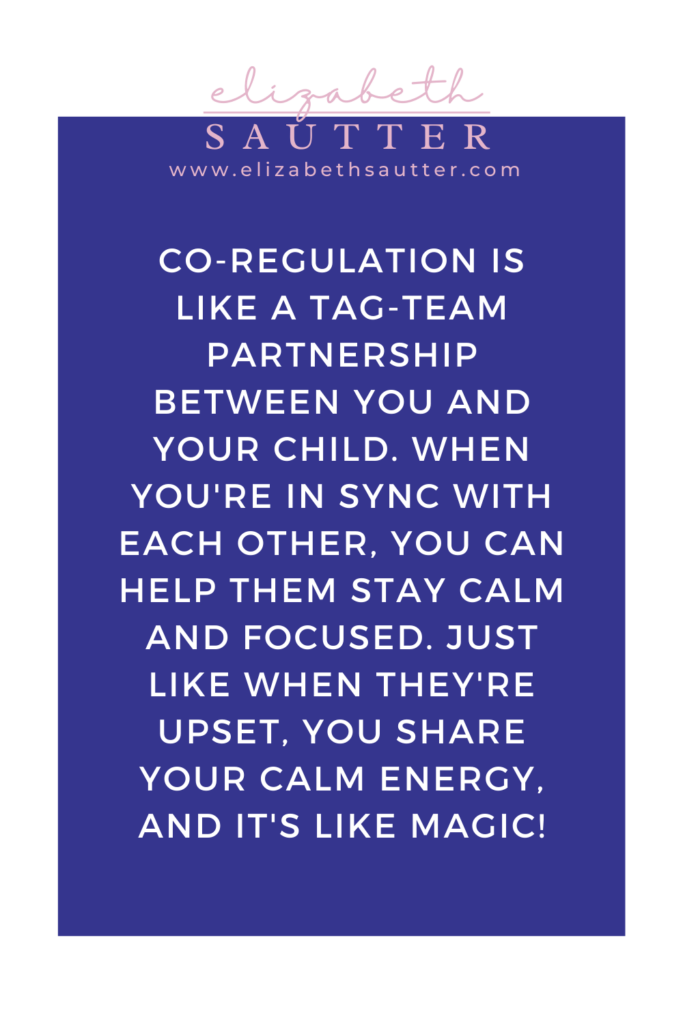
Emotions are catchy, so we aim to catch and spread that calmness around.
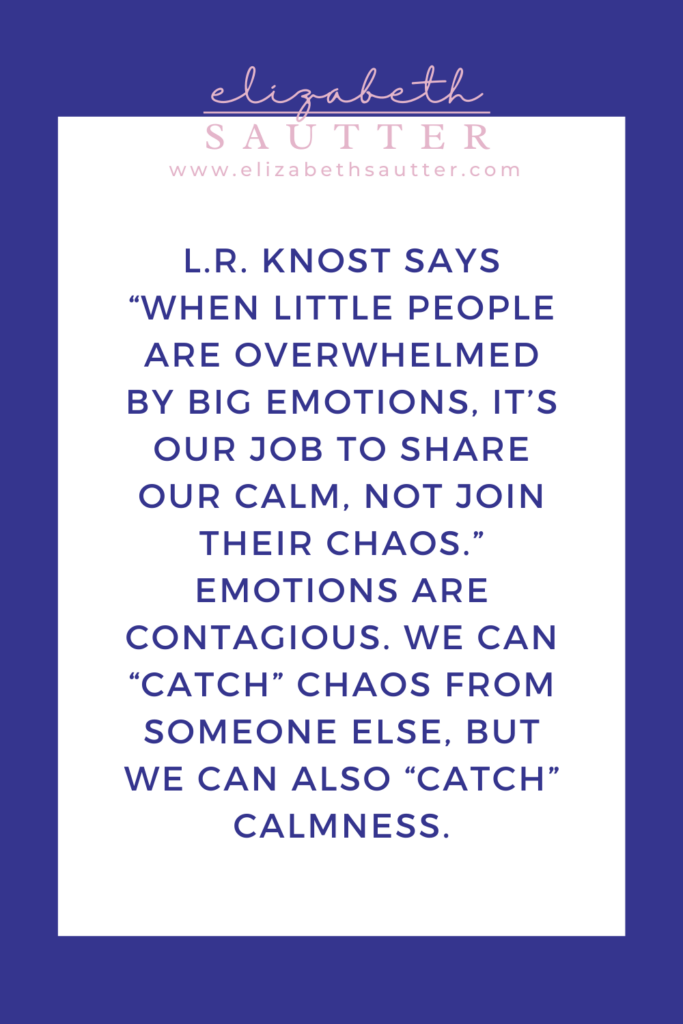
It can be like magic when we share our calm with the people around us!It’s especially important for kids who sometimes get overwhelmed by big emotions. When you stay cool, you share those vibes and you’re showing them how it’s done! And guess what? That’s creating pathways in their brain to handle their feelings better.
Now, before we dive into the tips for different ages, let’s get familiar with the ABCs of co-regulation – to make it as simple as we can and easy to remember.
The ABCs of Co-Regulation:
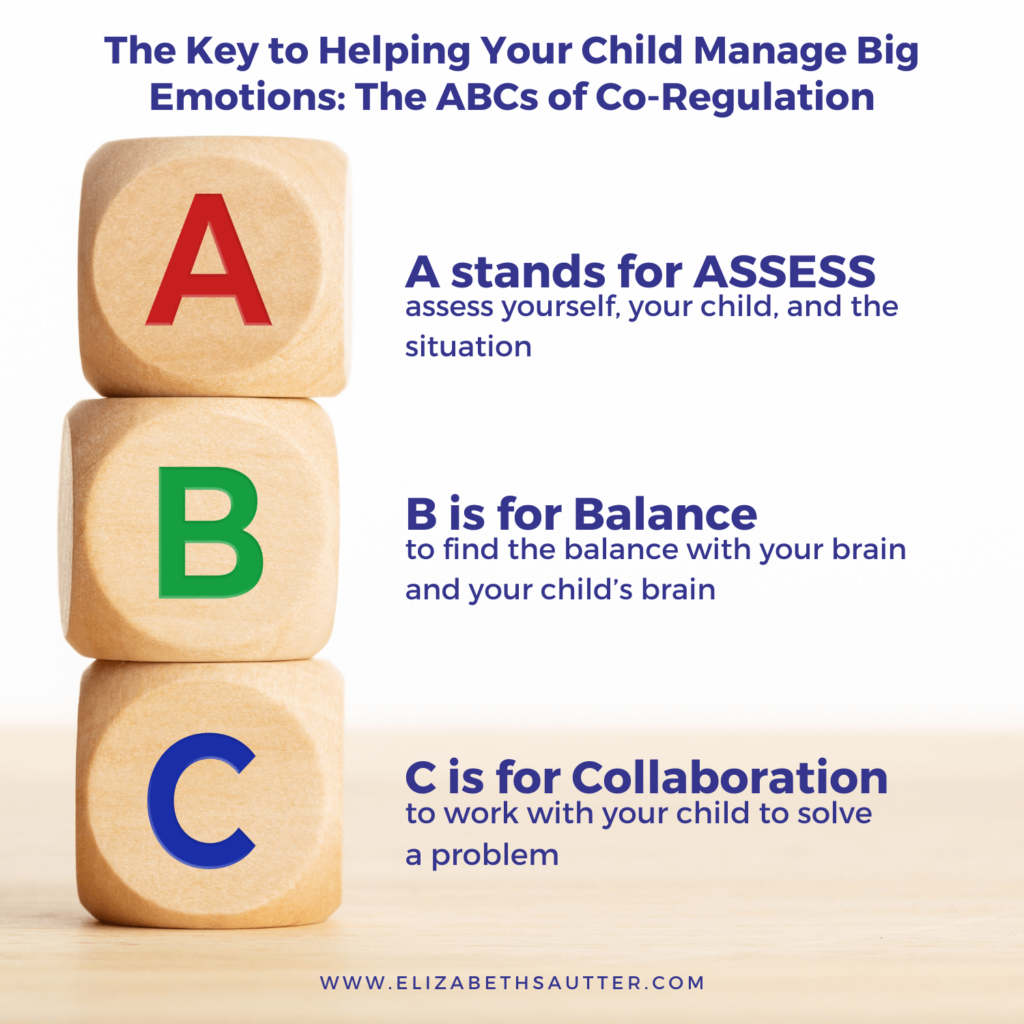
A is for Assess
Assess yourself, your child, and the situation. This is easier said than done! I have found that one of the best ways to learn to assess yourself is to use mindfulness. Research also supports this practice, which involves being present to the moment, on purpose, without judgment (John Kabit-Zinn). Mindfulness helps you to use your inner PAUSE button before reacting. Using the pause button allows us to remain calm in tough situations instead of reacting impulsively. Mindfulness allows you to assess the situation at hand by understanding both what is going on within you and outside of you. Once you have assessed a situation in a curious and mindful way, you’ll be able to access your thinking brain and find strategies to help you move forward and support yourself and your child. Mindfulness is something we can share with our children. We do this through simple practices, as well as modeling.
B is for Balance
Balance your brain and your child’s brain. Co-regulation is all about engaging our frontal lobe (“rational brain”) and balancing the brainstem (“reactive brain”) to support thinking calmly and problem solving vs. yelling or blowing up (e.g. survival mode). When you are in “brainstem mode,” your brain is not available to teach or support anyone effectively. When your child is in brainstem mode, their brain is not available for learning. An escalated adult cannot de-escalate a child. The best way to be proactive with balancing your brain is to make sure you are taking care of yourself and have the energy and the capacity to care for your child when stressful things come up.
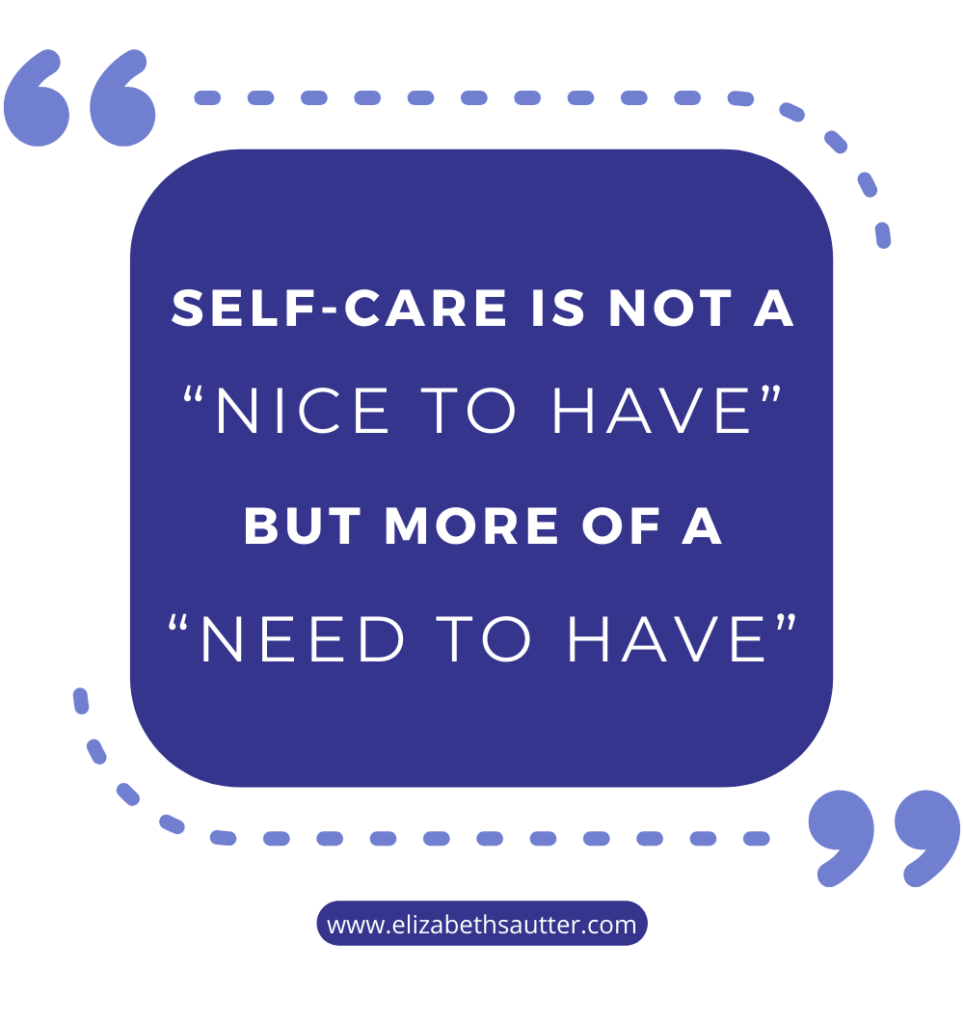
Self-care means looking at basic needs and making sure they have been met (e.g. food, water, sleep, exercise, connection, and sensory input) for both you and your child. It also means being proactive and making time to focus on what you and your children need on a daily and weekly basis to balance your brain and try to cut out or eliminate what depletes your physical and emotional reserves. This also includes self-compassion — treating yourself like you would treat your best friend – with positive, kind actions and thoughts. The reality is that problem-solving cannot happen until you and your child are out of “brainstem mode.”
C is for Collaboration
Collaboration is when we work with our children to solve a problem. Once we have assessed ourselves, our child and the situation and both people are balanced and able to think clearly, then collaboration can happen. This builds trust, rapport and respect in a parent-child relationship. First, make sure to get your child’s permission to problem solve, brainstorm and work together. It can help to validate your child’s feelings and show empathy for the situation (e.g. “I know that you have had a lot of homework lately”). Dr. Dan Siegel refers to this as connecting before redirecting. After gaining permission from your child, ask questions with curiosity and an open mind. State your concern using a phrase like “I noticed”. For example, you could say “I noticed that you were upset after band practice,” which gives your child an opening to tell you how they’re feeling. After they have finished sharing, it is time to brainstorm options together. Focus on the positive as you and your child collaborate to reach a decision. Often, they will start to brainstorm on their own and come up with solutions without you even having to provide any suggestions. Either way, it opens the conversation in a thoughtful, respectful and collaborative way.
Tips for Co-regulation using the ABCs with younger kids:
Assess with Empathy: Tune in with your little one’s emotions, and when they’re feeling big feelings, let them know you understand and share some calming vibes.
Balance Play and Rest: Little ones need lots of playtime and naps to recharge those emotional batteries. Keep a routine that includes both fun and snooze time.
Collaborate through Play: Use imaginative play to work through emotions together. Maybe the superheroes can tackle a “big feelings” monster?
Tips for Co-regulation using the ABCs with teens:
Assess with Validation: Listen to their feelings without judgment, and validate their experiences. They need to know they’re heard and supported.
Balance Independence and Guidance: Teens crave independence, so give them space to grow while offering your guidance when they need it. It’s a fine dance, but you got the moves!
Collaborate through Open Communication: Talk openly and respectfully about their emotions and struggles. They’ll appreciate your support and trust you even more.
With the ABCs in your pocket and these age-specific tips, helping your child handle those big emotions will feel less daunting…you got this Remember, parenting isn’t about being perfect; it’s about the journey and connection with your awesome child. So go on, sprinkle some co-regulation magic and watch those emotional superheroes grow!
But wait, there’s more! For even more parenting awesomeness, check out the book Make Social and Emotional Learning Stick, filled with awesome suggestions and activities to make parenting easier and more enjoyable. Kids do well if they can, and remember, parents do well if they can too. You are doing a great job, and you are not alone – I am here to help! Together, let’s make co-regulation a superpower that strengthens your bond with your child. Let’s do this!
 Join the Upcoming Workshop –
Join the Upcoming Workshop – 
